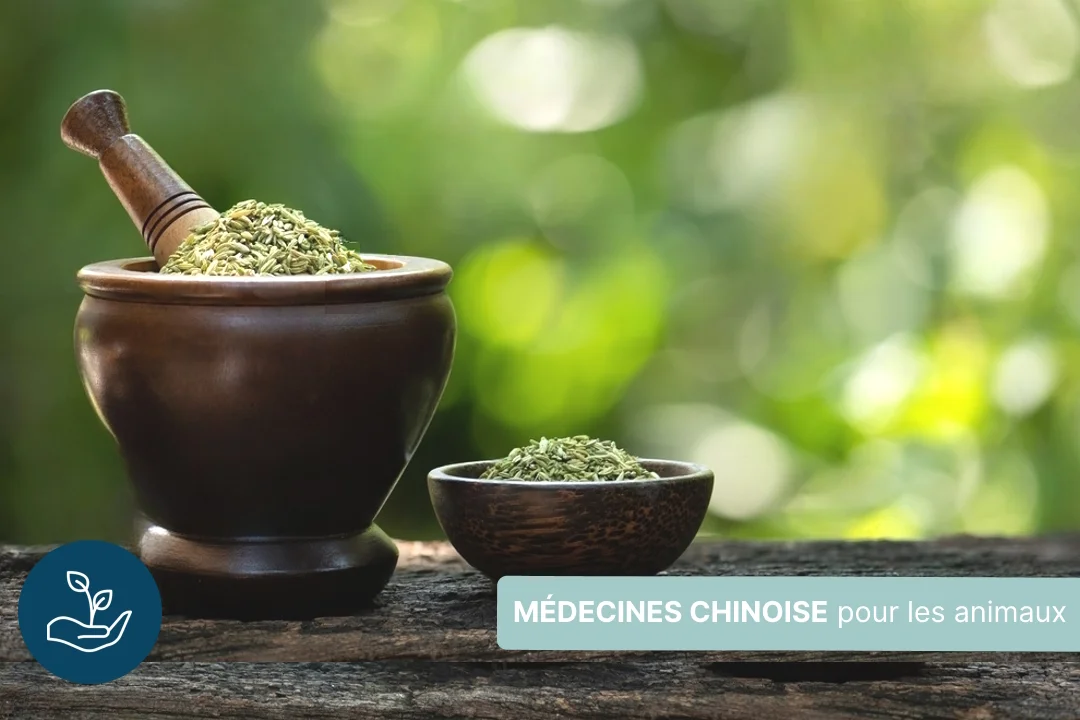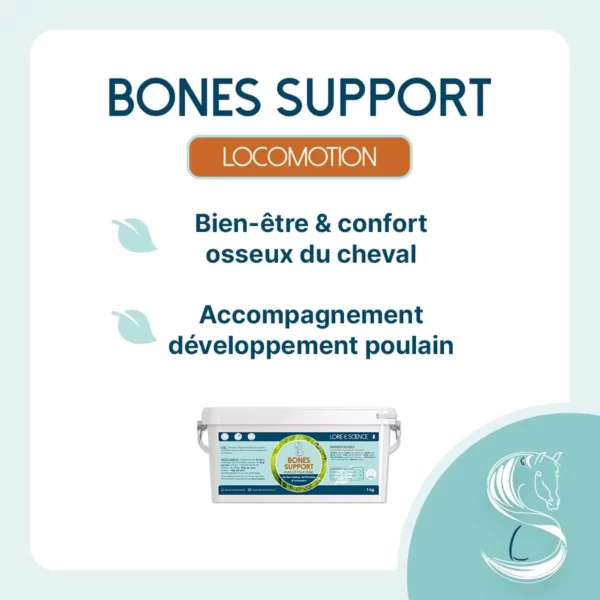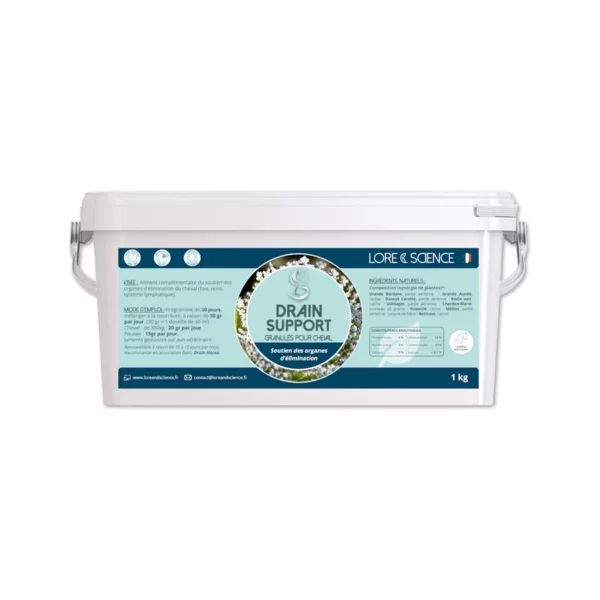Chinese medicine is a health care method that has been around for over 5000 years. It is based on a deep understanding of the relationship between body, mind and environment. According to its precepts, health is the result of the balance between the opposing forces of yin and yang, and the free flow of vital energy, called Qi, through the meridians of the body. Moreover, each organ is linked to an organic and a psychic function. This traditional method can also be applied to our animals. Horses, dogs, cats, in this article, Lore & Science explains how Chinese medicine can help you better understand your pet's health.
Vital organs in Chinese medicine for horses, dogs and cats
In horses, dogs and cats, the vital organs are the same as in humans: the liver, the heart, the "digestive system"(spleen and pancreas), the lungs and the kidneys. We decipher for you the roles of the different organs and their impact on the body of our pets according to Chinese medicine.
The liver, "general" of the animal body
According to the principles of Chinese medicine, the liver is considered the "general" of the body in horses, dogs and cats. This major organ has a great influence on the animal's blood circulation, digestion and mood. In fact, the liver regulates the free flow of energy throughout the body, which allows for optimal distribution of nutrients and oxygen. In addition, a healthy liver can help regulate the animal's metabolism, nervous system and immune system. However, if it is unbalanced or weakened, the animal may suffer from digestive disorders, colic, or even depression. These symptoms can greatly affect the animal's quality of life and make treatment difficult.
To maintain the health of your pet's liver, it is important to feed your pet a balanced and healthy diet with foods rich in antioxidants. In addition, it is important to protect your pet from excess toxins and medications, as these substances can affect liver function and cause liver damage.
The heart, responsible for emotions in Chinese medicine
The heart, in animals as in humans, is the organ that controls blood circulation. According to Chinese medicine, it is also responsible for emotions and feelings. If the heart is healthy, your dog, cat or horse will be happy, full of energy and have good blood circulation. However, if the heart is weak, your pet may suffer from fatigue, loss of appetite, coughing and other heart problems.
To maintain your pet's heart health, it is once again important to give him a balanced diet, but also to exercise him regularly and to avoid excessive stress.
The lungs, in control of breathing, skin and hair
According to the principles of Chinese medicine, the lungs are considered one of the most important organs of the animal body. They are responsible for breathing, of course, but also foroxygenating the blood andeliminating waste. In addition, they play a crucial role in regulating the skin and hair of our companions. Healthy lungs contribute to regular breathing and a beautiful coat. However, if this vital organ is weakened, the animal can suffer from coughing,shortness of breath, bronchitis,allergies and skin problems.
To maintain lung health in your dog, cat or horse, it is still essential to provide a balanced diet rich in nutrients to support lung function. Avoid processed and industrial foods loaded with chemical additives and saturated fats, which can contribute to lung inflammation and cause respiratory disease. Finally, protect your pet from cigarette smoke, air pollution and other irritants.
The kidneys, organ of vital energy
The kidneys are responsible for the filtration of toxins in the body. According to Chinese medicine, they are the most important organ for the production and storage of vital energy, or "Qi". They are also responsible for growth, reproduction and aging. If the kidneys are healthy, the animal will have strong bones, good general energy and good teeth. However, if they are weakened, the pet may suffer from urinary problems, fatigue, weakness, joint pain and bone problems. To maintain your pet's kidney health, keep it hydrated by providing enough fresh water.
The digestive system of animals in Chinese medicine: pancreas and spleen
The pancreas and spleen, also known as the digestive system, are vital organs responsible for digestion and food processing. According to Chinese medicine, they also play an important role in theproduction of vital energy and the regulation of blood. When the pancreas and spleen are healthy, the animal has efficient digestion, high energy and good blood circulation. On the other hand, an imbalance of the pancreas and spleen can cause digestive problems, fatigue and circulation problems.

Treating your pet according to Chinese medicine
According to Chinese medicine, the organs are in charge of the health of our animals. So, to take care of their health and balance, here are some general recommendations that you can implement on a daily basis, whether you are the proud owner of a dog, a cat or even a horse.
First of all, it is essential to give your pet a balanced, quality diet that promotes the health of all organs. It is also recommended that you feed your pet according to its temperament and health status, as some foods may be more beneficial to some animals than others. In addition to food, avoid toxins, chemicals and pollutants. You can also regularly offer your pet a detoxification or drainage treatment to support its immune system.
Another point is to keep your pet as free as possible from excessive stress, which can cause damage to its organs, especially the liver and kidneys. It is important to minimize his daily stress by providing a stable and calm environment.
Combine these recommendations with regular exercise. In general, exercise is good for your pet's health, including the health of its organs. According to Chinese medicine, it helps improve the flow of energy and blood in the body.
In short, Chinese medicine can offer new and interesting perspectives on pet health and wellness. By understanding the connections between the organs and the different aspects of your pet's life, you can help maintain its overall health and prevent disease.
React or ask your questions in the comments ↓















3 réactions sur "Chinese medicine and animals: the role of the organs"
I'm more than a little astonished to see, on an animal health website, the promotion of (pseudo) Chinese medicine. Indeed, Chinese medicine is the most massacring in the animal world, for totally obscurantist purposes. Here are just a few examples:
- Poaching rhinoceroses, whose horns are used as a supposed remedy for sexual impotence...
- Skinning of donkeys, the boiled skin of which is used to make a gelatine remedy, reputed to cure blood-related problems...
- Extraction of bile from LIVING bears, to treat and prevent liver problems (approx. $600 per kilo)...
- Tiger liquor for strength and vigor...
- Lion teeth, lips and genitals...
- Jaguar boiled for a week until it forms a molasses-textured "glue" (improves health and sexual performance, and reduces arthritic pain)...
- Powdered pangolin scales...
- Dried seahorse for alleged aphrodisiac properties...
In 2018, the market for these pseudo-medicines is estimated to have contributed some 34 billion euros to the country's economy. This thriving trade has been growing at an annual rate of 11% since Xi Jinping, a fervent supporter of the practice, came to power in 2013.
By 2023, traditional Chinese medicine will generate an annual income estimated at 50 billion euros, including 6 billion for endangered species alone.
No, animals definitely don't say thank you to traditional Chinese "medicine"!
Hello Jean Yves,
I understand perfectly your point of view on the elements you mention and of course I share them.
However, I don't think we should confuse the fundamental principles of a tried-and-tested medicine with the lucrative activities of certain unscrupulous people who, what's more, pull out of their hat pseudo-claims about the virtues of certain "ingredients".
Fortunately, the bibliography tells us what Traditional Chinese Medicine really is.
Sincerely
Pseudo remedies and acupuncture (acupressure) techniques have nothing to do with it.
A surprisingly precocious advance compared to our Western medicine, rich in the body and a certain way of functioning, contrasts with certain more placebo remedies with no scientific basis.
Certain dietary aberrations
Knowledge of plants...is being lost to the pharmaceutical industry.